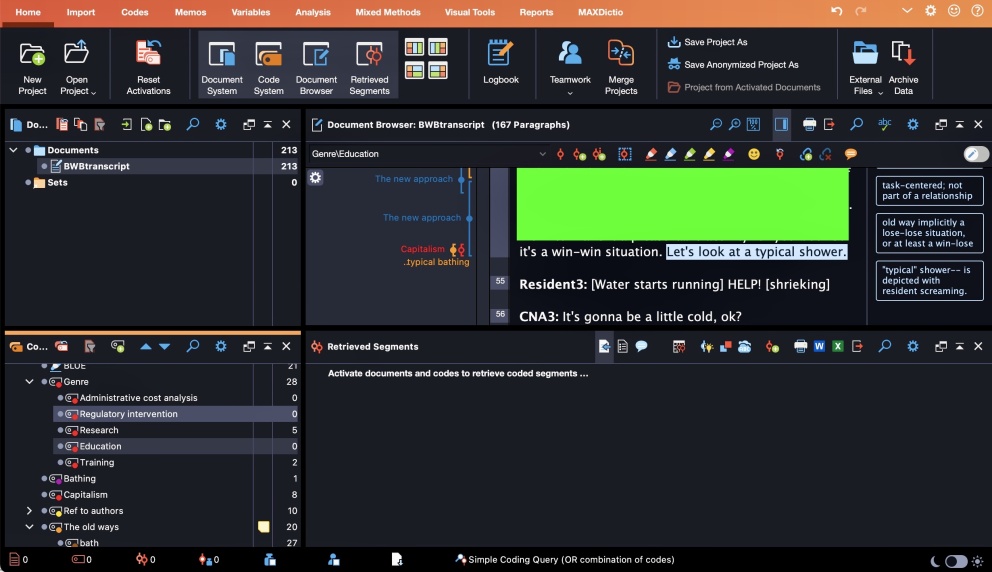What we say about what we do

Most mornings in long-term care homes have a familiar cadence and rhythm. People waking, stretching, groaning, washing, brushing, and so forth. When nurses describe their role in this morning ritual, some will say they are “washing people up.” Others will say they are “assisting people with morning care.” In my research, I wonder…. are these nurses doing the same thing? Linguistically, no. In the first description, nurses are the only active subjects. Older adults are passive subjects who receive a nurse’s actions. They are washed. In the second description, nurses provide (and people receive( a much different action—assistance. Older adults become people who may need help acting in the world, but do so nonetheless. In my research, I use the tools of critical discourse analysis to analyze what some people might think of as the minutiae of language. I look at verb tenses, pauses, false starts and stops, and other seemingly small details of everyday language to uncover how care work and older adults (particularly those living with dementia) are positioned in nurses’ talk about (with?) them. The photograph depicts part of that work, analyzing a transcript for the way the world is represented in a program called MAXQDA.